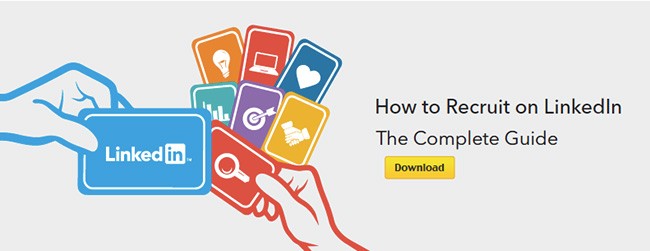Why Introverts Make the Best Recruiters
I'll start this post with a personal story. A few years back I was recruited for two similar jobs by two different recruiters.
The first recruiter was a classic extravert, a go-getter determined to get a "yes!" The second was more laid back, very much an introvert. I remember she asked me questions about what I really wanted in a career.
At the end of the post, I'll tell you which job I accepted and what happened as a result, but for now, let's talk about how personality types relate to both selling and recruiting.
Recruiters as Salespeople
Recruiters, by definition, are salespeople. When they identify a top candidate for a hard-to-fill position, they must sell the company as a good place to work, where that candidate will be happier than if he or she worked elsewhere.
Many businesspeople believe that the best salespeople are extraverts, the kind of outgoing, talkative and energetic person who can "sell anything to anyone." Not surprisingly, some recruiters fall into that general type.
However, that kind of "Always Be Closing" salesmanship has long since ceased to be effective, if indeed it ever really worked. Most people have come to dislike pushy salespeople and resist any sales technique (and there are many of them!) that feels manipulative.
Sales and Technology
Technology has also altered customer expectations. With an Internet connection, a customer (or a candidate) can quickly and easily search up the details of a company, its management, its products and so forth.
As a result, customers are better informed when they enter into a sales engagement, and they do not require salespeople to provide as much (or any) information. Customers who are armed with their own sources of information do not want a sales pitch that leads to being pushed to sign on the dotted line.
Quite the contrary. Customers now expect salespeople to help clarify their thinking and put the information that they already possess into its proper context. They want a trusted advisor, not a carnival pitchman.
Extravert and Introvert
Customer-focused selling—where the salesperson becomes a trusted advisor—comes more naturally to introverts than to extraverts, because trust emerges primarily from listening and reacting (introvert behavior), rather than from talking and convincing (extravert behavior.) This is especially important in recruiting, because recruiters are asking a candidate to make a personal, life-changing decision. Candidates want to feel as if they're being advised on making the best decision rather than being pushed into a decision they might later regret.
Because of this, an introverted recruiting approach is generally more effective than an extraverted approach, at all stages of the recruiting process.
Take, for example, making initial contact via InMail.
An extravert in this situation will use the initial email to "talk up" the job and the hiring company, and may even try to convince the candidate to commit to be interviewed.
An introvert, by contrast, is more likely to open a dialog through an exchange of InMails in order to assess what's important to the candidate, and ascertain whether the match would benefit both the candidate and hiring company.
An Example of Introverted Recruiting
There is probably no recruiting job more difficult than getting highly-qualified candidates to join the military. When a candidate accepts a position with a business, he or she can always back out, or leave if the job doesn't work out.
A military job involves a minimum commitment of two years—regardless of whether candidates later feel that the military is not the right place for them to work.
A while back, I interviewed LaShonda Tart, a recruiter for the U.S. Navy who illustrates the effectiveness of an introverted recruiting style.
Rather than attempting to sell candidates on the advantages of a Navy career, she sets up barriers that candidates must cross before moving to the next level of the process. She makes it seem as if being recruited is an achievement, rather than a mere decision.
As the relationship progresses, she doesn't push candidates to make a decision but instead interviews candidates to find out what they hope to get out of the experience.
By recruiting more than three times as many highly-qualified candidates as the national average, Ms. Tart won the U.S Navy's “Diversity Recruiter of the Year” award.
The Dangers of Extravert Recruiting
This is not to say that a pushy and extraverted style of recruiting never works. However, when a candidate is convinced, persuaded or manipulated into saying "yes," the results can backfire.
Which brings me back to my personal story. As it happens, the extraverted recruiter convinced me to take a job at a large computer manufacturer, which had a corporate culture where an iconoclast like me did not fit in. It was a poor match that was to the advantage of neither me nor my employer.
Of course, I have no idea whether my experience would have been better if I'd accepted the job in a start-up that the more introverted recruiter offered me. I suspect, though, that I would have done better work and helped the company more than where I ended up.
To receive blog posts like this one straight in your inbox, subscribe to the blog newsletter.
Topics: Recruiting tips
Related articles




